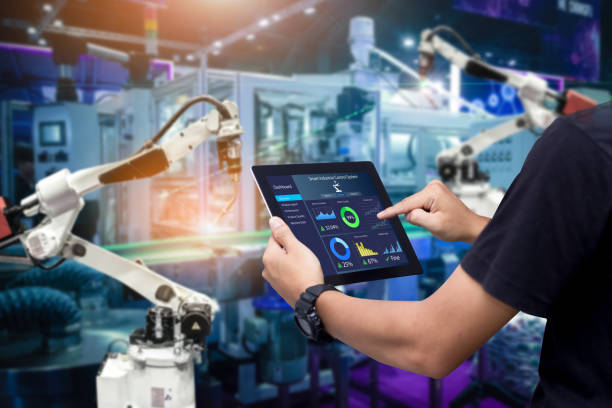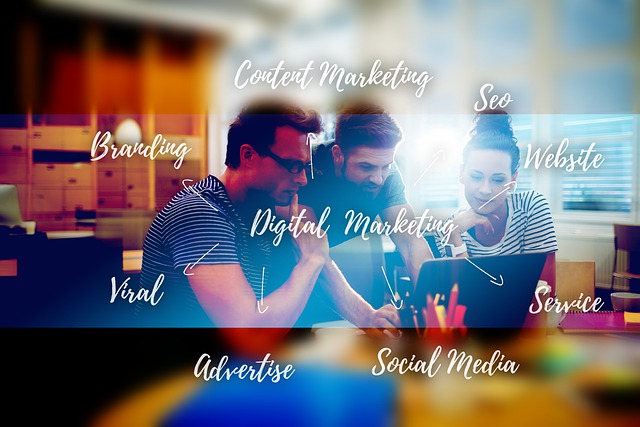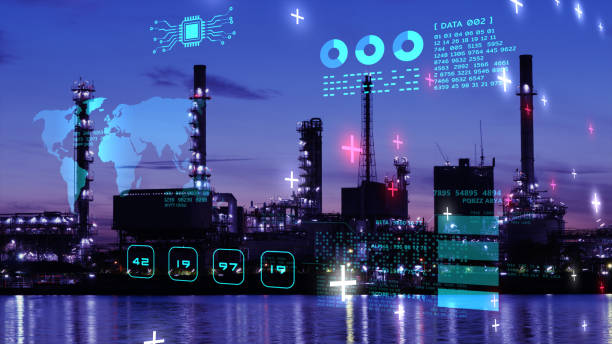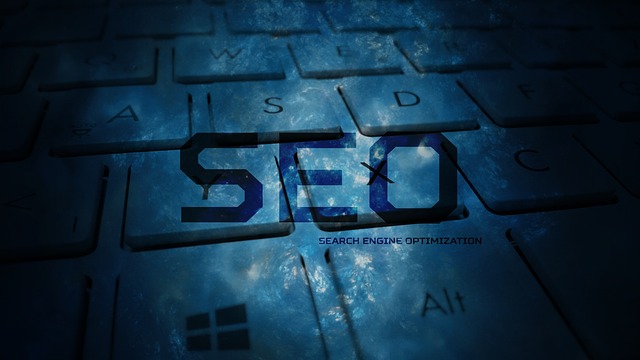
AI-Powered Automation Tools for Search Engine Marketing Optimization
In the fast-paced realm of digital marketing, keeping pace with the ever-evolving landscape is paramount to achieving success. As search engine marketing (SEM) continues to serve as a fundamental pillar of online visibility and customer acquisition, marketers are relentlessly pursuing innovative strategies to refine their campaigns and yield tangible results. Recently, the infusion of artificial intelligence (AI) has heralded a paradigm shift in SEM, introducing a suite of powerful automation tools designed to streamline processes, heighten targeting precision, and amplify campaign efficacy. In this comprehensive guide, we embark on a journey into the realm of AI-powered automation tools tailored for search engine marketing optimization. Through an in-depth exploration, we delve into the manifold benefits, multifaceted functionalities, and indispensable best practices for seamless implementation and integration of these cutting-edge tools into your marketing arsenal.
Understanding AI-Powered Automation in SEM
AI-powered automation in SEM harnesses machine learning algorithms and advanced data analytics to streamline campaign management, optimization, and decision-making processes. These tools analyze extensive data sets to detect patterns, forecast outcomes, and enhance real-time campaign performance. By integrating AI, marketers can enhance efficiency, scalability, and overall effectiveness in their SEM endeavors. This innovative approach enables marketers to leverage data-driven insights and predictive modeling to refine targeting, bidding, and ad creative strategies, maximizing ROI and driving sustainable growth in their SEM campaigns. Embracing AI-powered automation empowers marketers to stay agile in a rapidly evolving digital landscape, ensuring they remain competitive and responsive to changing market dynamics.

Benefits of AI-Powered Automation Tools
1, Enhanced Efficiency: AI-powered automation tools offer enhanced efficiency by streamlining time-consuming tasks like keyword research, bid management, and ad optimization. Marketers can redirect their time and resources towards strategic decision-making and creative initiatives, maximizing productivity and campaign effectiveness. This increased efficiency enables marketers to achieve more in less time, driving better results and ultimately enhancing overall campaign performance.
2, Improved Targeting Accuracy: AI-powered tools leverage vast datasets and user behavior patterns to deliver highly targeted ads, amplifying engagement and conversion rates. This precision ensures marketing efforts resonate with receptive audience segments, optimizing the effectiveness of SEM campaigns. Enhanced targeting accuracy is instrumental in driving impactful results and achieving campaign objectives in the competitive landscape of search engine marketing.

3, Real-Time Optimization: AI algorithms continually monitor campaign performance metrics and dynamically adjust bidding strategies, ad creatives, and targeting parameters in real time. This real-time optimization ensures maximum ROI and enables campaigns to swiftly adapt to changing market conditions, ultimately driving success in achieving campaign objectives and maximizing overall performance in search engine marketing.
4, Scalability: AI-powered automation facilitates scalability, enabling marketers to expand SEM efforts seamlessly across various campaigns, channels, and platforms. This scalability ensures that performance and efficiency remain uncompromised even as campaigns grow in scope and complexity, empowering marketers to reach broader audiences and capitalize on new opportunities for engagement and conversion.
5, Data-Driven Insights: AI-powered tools offer data-driven insights and actionable recommendations derived from thorough data analysis. Marketers can leverage these insights to make informed decisions and fine-tune campaign performance effectively. By harnessing the power of AI-driven analytics, marketers can optimize their SEM campaigns for maximum impact and success.

Key Features of AI-Powered Automation Tools
1, Predictive Analytics: Through predictive analytics, AI algorithms scrutinize past performance data to forecast future trends and outcomes. This capability empowers marketers to anticipate shifts in the market landscape and adapt their strategies proactively, ensuring they stay ahead of the curve and capitalize on emerging opportunities effectively.
2, Dynamic Bidding: Through predictive analytics, AI algorithms scrutinize past performance data to forecast future trends and outcomes. This capability empowers marketers to anticipate shifts in the market landscape and adapt their strategies proactively, ensuring they stay ahead of the curve and capitalize on emerging opportunities effectively.

3, Ad Creative Optimization: AI-powered tools optimize ad creative elements like headlines, copy, and visuals by analyzing performance data. This analysis identifies high-performing variations and fine-tunes campaigns to maximize engagement and conversion rates. This ensures that marketers deliver compelling and relevant ads that resonate with their target audience, driving success in SEM campaigns.
4, Audience Targeting: AI-powered tools scrutinize ad creative components like headlines, copy, and visuals, pinpointing top-performing variations. By optimizing campaigns based on these insights, marketers achieve peak engagement and conversion rates. This ensures ads resonate effectively with target audiences, driving success in SEM endeavors through compelling and resonant content optimization.
5, Campaign Automation: AI-powered automation streamlines SEM tasks like campaign setup, budget allocation, and performance reporting. By automating these repetitive tasks, marketers gain valuable time for strategic planning and optimization efforts. This efficiency allows marketers to focus on refining their strategies and driving campaign success, ultimately maximizing ROI and achieving business objectives in the ever-evolving digital landscape.

Best Practices for Implementing AI-Powered Automation in SEM
1, Start with Clear Objectives: To implement AI-powered automation effectively in SEM, start by defining clear objectives for your campaigns, such as increasing website traffic, generating leads, or driving sales. Ensure that your automation strategies align with these overarching business goals to maximize impact and ROI. By setting clear objectives, you can tailor your automation efforts to meet specific targets and objectives, ensuring that your SEM campaigns are optimized for success in achieving your desired outcomes and driving meaningful results for your business.
2, Choose the Right Tools: When selecting AI-powered automation tools for SEM, conduct thorough research and evaluation to ensure they meet your specific needs, budget, and technical requirements. Opt for platforms with robust features, intuitive interfaces, and seamless integration capabilities with your existing marketing technology stack. By choosing the right tools, you can optimize your SEM efforts effectively and drive success in achieving your business objectives.

3, Data Quality and Integration: For a successful implementation of AI-powered automation in SEM, prioritize data quality and integration. Verify that your data is accurate, reliable, and easily accessible across all relevant platforms. Integrate AI-powered automation tools seamlessly with your CRM, analytics, and ad platforms to harness data-driven insights and enhance campaign performance. This ensures that your automation efforts are built on a foundation of reliable data, enabling you to make informed decisions and drive optimal results in your SEM campaigns.
4, Continuous Monitoring and Optimization: Consistent monitoring of campaign performance metrics and KPIs is essential for identifying optimization opportunities. Utilize AI-powered analytics and reporting tools to extract actionable insights from real-time data. By leveraging these insights, marketers can make informed decisions and fine-tune their strategies promptly, ensuring ongoing optimization and maximizing the effectiveness of their SEM campaigns.
5, Stay Updated with Industry Trends: To stay competitive and innovative, it’s crucial to stay informed about the latest trends in AI-powered automation and SEM. Attend industry conferences, webinars, and training sessions to learn from experts and exchange best practices with peers. By keeping abreast of industry developments, marketers can adapt their strategies effectively, capitalize on emerging opportunities, and maintain a competitive edge in the ever-evolving landscape of digital marketing.

Case Studies: Real-World Examples of AI-Powered SEM Optimization
To illustrate the effectiveness of AI-powered automation tools in SEM, let’s explore two real-world case studies:
1, E-commerce Retailer: By deploying AI-powered bidding and ad optimization tools, an e-commerce retailer witnessed remarkable results. Within just one month of implementation, the retailer experienced a substantial 30% surge in conversion rates and a notable 20% reduction in cost per acquisition (CPA). Leveraging predictive analytics and dynamic bidding strategies, the retailer capitalized on valuable insights to optimize ROI and propel incremental revenue growth. This success underscores the transformative power of AI-driven automation in enhancing campaign performance and achieving tangible business outcomes in the competitive landscape of search engine marketing.
2, Travel Agency: A travel agency embraced AI-powered audience targeting and ad creative optimization tools to tailor messaging and offers to specific audience segments. This strategic approach yielded significant results, with a notable 25% uptick in click-through rates (CTR) and a commendable 15% decline in cost per click (CPC). The outcome was elevated ad engagement and conversion rates, underscoring the efficacy of AI-driven automation in enhancing campaign performance and driving meaningful results for businesses operating in the competitive realm of search engine marketing.
Conclusion:
In conclusion, AI-powered automation tools are reshaping the landscape of search engine marketing optimization, providing marketers with unparalleled efficiency, precision, and scalability in their SEM endeavors. By leveraging AI algorithms and sophisticated data analytics, marketers can elevate campaign performance, maximize ROI, and strengthen competitiveness in the fast-paced digital realm. Whether you’re a seasoned SEM expert or a newcomer to the field, the integration of AI-powered automation into your marketing arsenal presents a gateway to unlocking untapped opportunities for growth, innovation, and triumph in the dynamic world of digital marketing. Embracing these advanced technologies empowers marketers to navigate the evolving digital landscape with confidence, adaptability, and strategic foresight, ensuring they stay ahead of the curve and achieve sustainable success in their SEM campaigns. As the digital ecosystem continues to evolve, AI-powered automation will remain an indispensable tool for driving impactful results and achieving business objectives in search engine marketing.